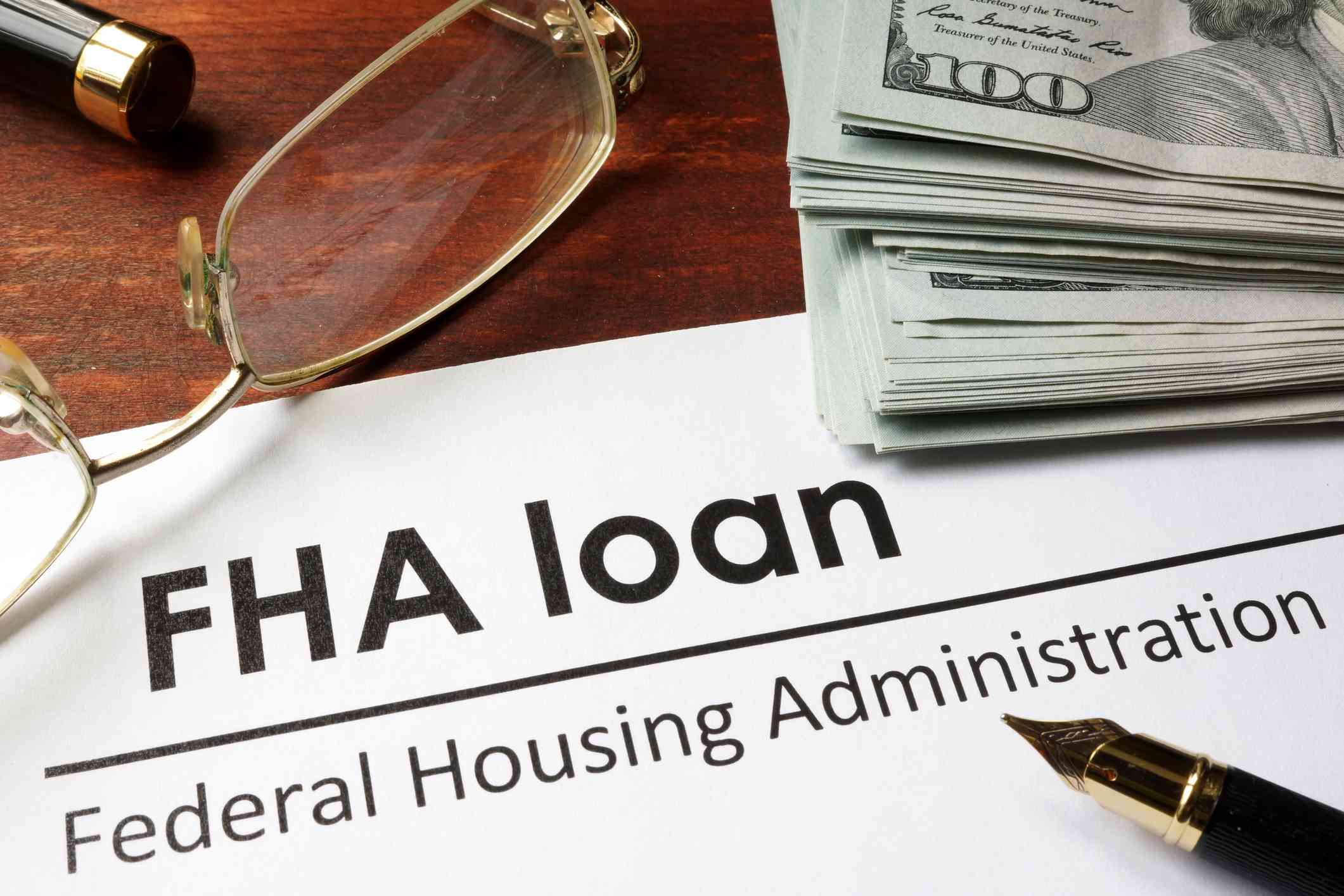How will the Nebraska housing market change in an economic downturn? The economy looks like…

FHA Loan | First Time Home Buyers | Omaha NE Mortgage Guide
Is an FHA loan a good option for first time home buyers in Nebraska?
Though the FHA (Federal Housing Administration) loan is not restricted to first time home buyers, many first time home buyers take advantage of the program. FHA has flexible credit and debt to income requirements and has options that allow buyers will little or no money of their own to still qualify.
I am a local mortgage broker serving Omaha, Papillion, La Vista, Bellevue, and all of eastern Nebraska. If you are a first time home buyer and would like to know your options, I can help.
See if you qualify for an FHA loan HERE
- Debt to Income requirements
- Credit score requirements
- Asset requirements
- Down payment options
- Disadvantages of the FHA loan
FHA’s debt to income requirements
An advantage of the FHA loan program is that it’s more flexible on debt to income. Your debt to income is calculated by taking the minimum payments of all debts showing on your credit report plus the new house payment and comparing it to your monthly gross income. FHA will allow a debt to income ratio that is higher than more traditional loans. FHA will go as high as 56.99% in most cases. If you make $10,000 a month, your total debt payments can equal $5,699 and you can still go FHA.
Student loan debt
There are a few things that are unique to FHA debt calculations. One of the biggest is how they look at student loans. This is important because many FHA loan buyers are younger and often have a lot of student loan debt. Student loans will often offer “income based” payments to avoid burying new graduates in student loan payments. That income based payment allows people with student loans to pay a much smaller monthly payment than would typically be required.
FHA will not use “income based” student loan payments
However, for FHA qualifying purposes, we have to use the fully amortized payment or 1% of the balance in your debts. This can be a huge issue for buyers. For example, a buyer could have a 100k in student loan debt and, with income based payments, only be paying $100 a month. But for an FHA loan we would have to put in a payment of $1000 and see if it still fit your debt ratios. This can create issues for many FHA buyers.
With a lot of student loan debt, FHA may not be the way to go
If you think your student loans will cause an issue with qualifying, contact a loan officer to see what is needed to qualify for other programs. More traditional financing will use the lower income based payment assuming you meet their credit and asset requirements.
FHA credit score requirements
A buyer’s credit score is probably the number one reason someone goes FHA. This program was designed to allow buyers with less than perfect credit to purchase a home. Because of this, FHA is a lot less strict on credit score than most other traditional financing options.
Conventional financing not only has a higher score requirement, but the rate and mortgage insurance get worse as the score goes down. A buyer’s credit score also affects the FHA rate (though not the MI rate) but it does not change nearly as much as conventional. If you have less than a 700 score it may be worth looking at the FHA loan to see if it is a better fit than standard conventional financing. Even if you qualify for conventional financing, once you are below 700 on credit a lot of times FHA is the better option on rate and fees.
FHA asset requirements
The FHA program was designed for buyers with limited assets. Because of this, FHA has a lot of options for buyers will few funds to contribute to a home purchase.
Few reserve assets is okay with FHA
All loan programs will require any cash needed at close be sourced and documented. However, FHA is a little more flexible on “reserve assets”. A reserve asset is any liquid funds left over after subtracting out cash needed to close. Reserve assets are measured in “months reserves”. A month of reserves is one month of mortgage payments left over after cash needed at close. If your mortgage payment is $1,000 a month and you have $3,000 in reserve assets you have 3 months reserves. Having reserve assets helps your loan approval because it shows you have the ability to make your payment even if your income temporary stopped.
Most loan programs require reserves with a low down payment
More traditional forms of financing will start to require reserve months with a low down payment option. Even if you meet the credit and income guidelines for conventional financing, with a lower down payment reserves may be required. However, on FHA reserve assets are usually not a requirement even with the minimum down payment. As long as we can verify the cash needed at close (and you meet the other guidelines) you can qualify for FHA financing.
Most buyers using FHA are doing so because of limited assets. With larger down payments it usually does not make sense to go with FHA.
FHA down payment options
Now FHA is the original low down payment option, but even that 3.5% can be high for some buyers. FHA does have a few options for buyers with limited funds.
Gift funds
FHA allows gift funds from a relative for down payment, closing cost, and escrow. With a signed gift letter, a relative can give a buyer any amount of money for their home loan. The gift money can even be used to pay down consumer debt at close if needed. If debt ratios are too high due to consumer debts (credit cards, auto loans, installment loans) the gift money can be used at close to pay those off and qualify.
Seller credits
FHA does allow the seller to contribute to the closing cost and escrow of a buyer’s purchase (they cannot contribute to the down payment). Now nearly every loan program allows some seller credits on a home purchase. But FHA allows the highest amount at 6% of the purchase price. For nearly all home purchases in Nebraska, 6% is more than enough to cover all closing cost and escrows. A buyer can use nearly any combination of gift funds and seller credits to cover their cash needed to close. This give many buyers the option to purchase a home with no money out of their pocket.
Disadvantages of an FHA loan
The FHA loan is an excellent program for first time home buyers and buyers with less than perfect credit. But it does have some disadvantages.
Permanent mortgage insurance
Probably the biggest disadvantage of FHA over traditional conventional financing is the MI. While conventional mortgage insurance drops off once a buyer has 20% equity in the home, FHA mortgage insurance stays on for the life of the loan. Mortgage insurance is not a benefit to the buyer. It protects the lender (or the Federal Housing Administration) from default.
Because MI is not a benefit, getting rid of it should be the goal of any homeowner. While on conventional financing it is just a matter of paying the loan down, FHA will require you to refinance. A homeowner with an FHA loan will have to refinance into a conventional loan as soon as their credit has improved or their home has more equity (or both). My team and I will monitor your mortgage and your home value after close to let you know exactly when it will benefit you to refinance out of the FHA loan.
Little more strict appraisal requirements
It is often overblown by sellers and seller’s agents, but FHA is a bit more strict on appraisal when it comes to the condition of the house. An FHA appraiser can require minor repairs be done to the house prior to closing on an FHA loan.
FHA appraisal repairs are usually limited to safety issues. Tripping hazards, exposed wire, lead paint, broken windows, and missing railings are the most common. These can be fixed on the cheap and do not have to be pretty, but just the chance that these might come up gives some sellers hesitation accepting an FHA offer. In a competitive seller’s market with multiple offers on a home, FHA buyers are less likely to get their offer accepted over conventional buyers.
Still a great program for first time home buyers
Again, FHA is not a first time home buyer program. But the advantages of the FHA loan (low down payment, forgiving income and asset requirements) make it an excellent program for many first time home buyers. The disadvantages of the FHA loan usually means those with a larger down payment will go the conventional route.
If you are concerned about qualifying for a home loan either due to debt, credit, or assets the first place we will start is the FHA program. We can go through all the advantages of disadvantages of FHA, conventional financing, and buying now vs wait to purchase.
Other useful links
- How to improve your credit
- The 20% down rule on conventional
- What is Escrow?
- How is income calculated?
- Why your assets matter
- Mortgage Calculator
- Is Credit Karma accurate?
- FHA vs Conventional, which is better?
What To Do Next




